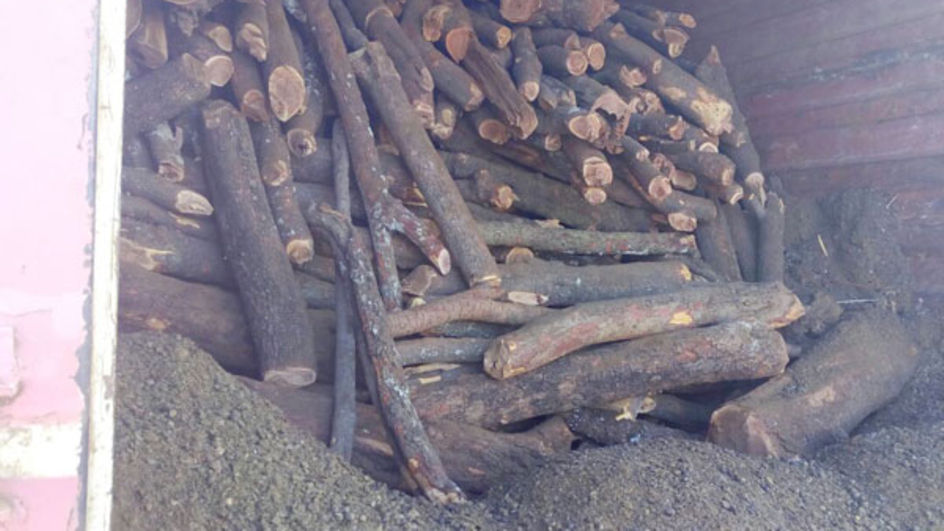Why sandalwood could be the next big business for many tree farmers

Sandalwood (Osyris lanceolata) is indigenous to tropical areas of Africa and Asia.
In Kenya, it grows naturally in drylands of Baringo, Samburu, Isiolo, Taita-Taveta, Makueni, Kitui, Machakos and Kajiado counties.
In Tanzania, it is distributed in the Arusha and Kilimanjaro regions, which neighbour Kajiado.
The tree grows in regions with an altitude of between 900 to 2,250 metres above sea level and annual rainfalls of between 600mm and 1,600mm.
Sandalwood is one of the most important trees in the world because of its excellent medicinal benefits.
It has been part of the alternative ayurvedic medicine in India for ages. All parts of the tree are useful in production of medicine.
The roots, seeds, bark and trunk contain chemicals that have been proven to have anti-inflammatory, anti-bacterial and even anti-cancer properties.
Oils extracted from the seed can help treat hypertension and can be used as a pain reliever. It can treat wounds, boils, rheumatism and arthritis.
The plant can also treat diarrhoea, gout and even leprosy. In cases of poisoning, it has properties that induce vomiting, thus removing the toxin from the system.
Oil from the tree is also used in cosmetic products such as incense, perfumes and aftershave. It can even be used as a shampoo for those who suffer from dandruff.
A litre of sandalwood oil can fetch as much as Sh250,000 in the international market.
The global demand for sandalwood products is driving the tree to be harvested into extinction.
Sandalwood has been listed under endangered species in the Convention on International Trade in Endangered Species of Wild Fauna and Flora. International trade is tightly controlled.
Both Tanzania and Kenya, where the tree is in danger of extinction, have banned its export but this has only driven the trade underground.
In Baringo, Samburu and Isiolo counties, large swathes of land where this tree once grew are bare today.
PRIVATE AND PUBLIC FARMS
The tree regenerates naturally if it is cut down at the stem. But because its roots are as valuable as the other parts, illegal loggers uproot the whole tree.
Despite hundreds of tonnes of sandalwood being seized by police since the trade was banned, officials feel they are fighting a losing war because the big boys behind the illegal trade are never caught.
Widespread corruption in enforcement of the ban is to blame for this. The situation has become so dire that alternatives are now being actively pursued to save the tree from extinction.
The Kenya Forestry Research Institute (Kefri) is fronting this effort by helping to take the tree from the wild to private and public farms where hopefully its use can be sustainable.
The Dryland Eco-Region Research Programme based at the Kitui Kefri station is at the heart of the efforts to domesticate sandalwood.
Kefri hopes that cultivation of the species will ease pressure on natural populations while providing income to growers.
Dr Albert Luvanda, the regional director/principal research officer, says sandalwood can be propagated by cuttings, seeds and layering. Seeds and layering are the most preferred for large-scale production.
The seeds have a hard coat that requires scarification and boiling in water for successful germination which takes between 21 and 60 days.
At Kefri, trees are sown in greenhouses and then transferred to nurseries where they remain for 15 months before they are ready for planting on the farms.
Air-layering or marcotting is another method of propagation. It involves use of branches which are induced to develop roots.
When the roots are well-developed, the new stem is detached and planted separately.
The trees mature for harvesting after 15 to 20 years. Because this is the first time the tree is being domesticated, farmers need training. Additionally, they need permits - from Kefri, Kenya Wildlife Service and Kenya Forest Service - to grow and trade in this tree.
These farmers could be a crucial buffer between sandalwood and extinction, which will be such a tragic loss to the world. And they will make some good money while at it.








Post a Comment